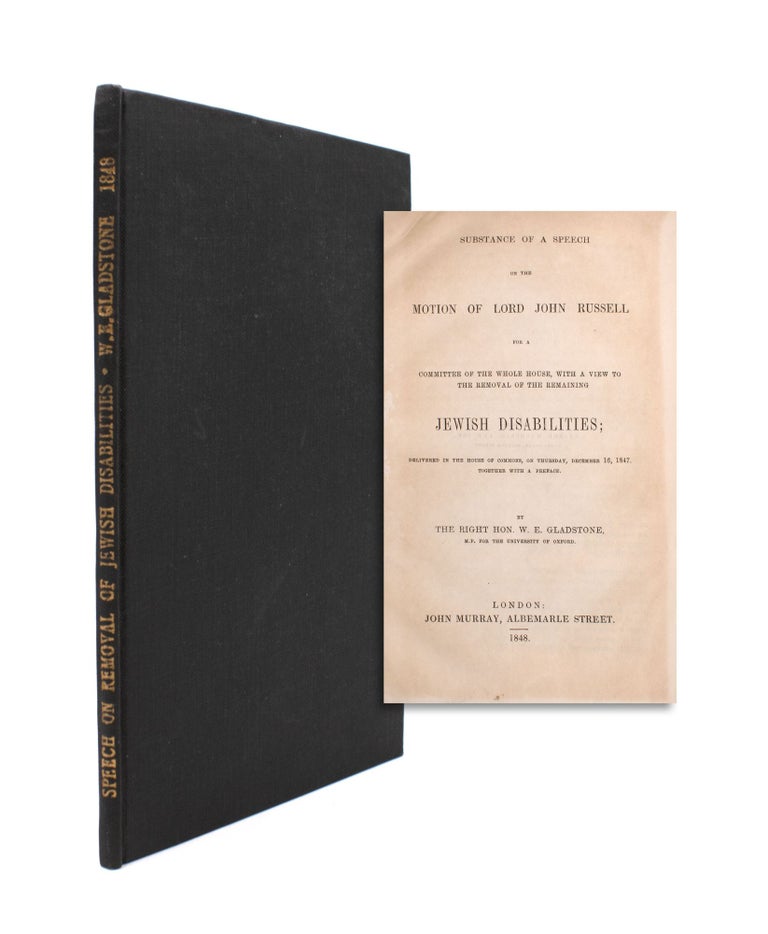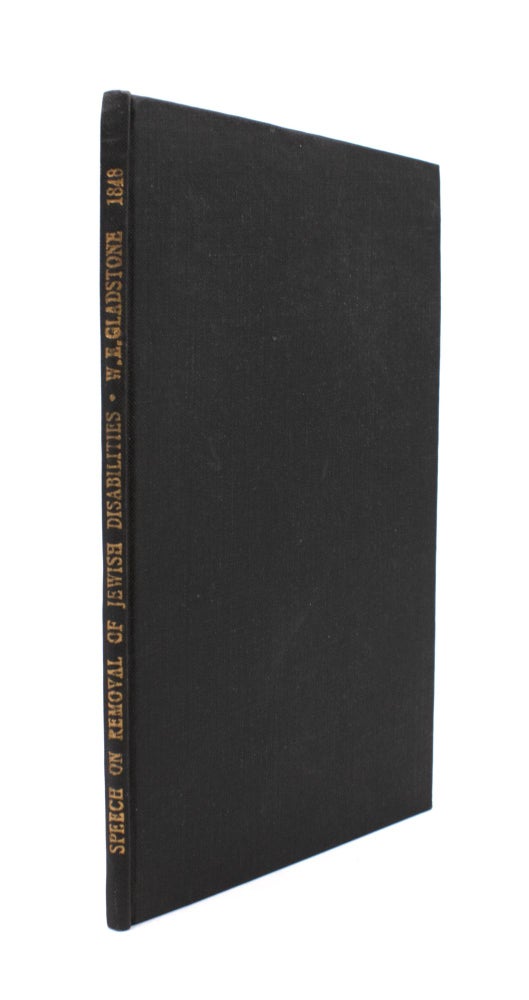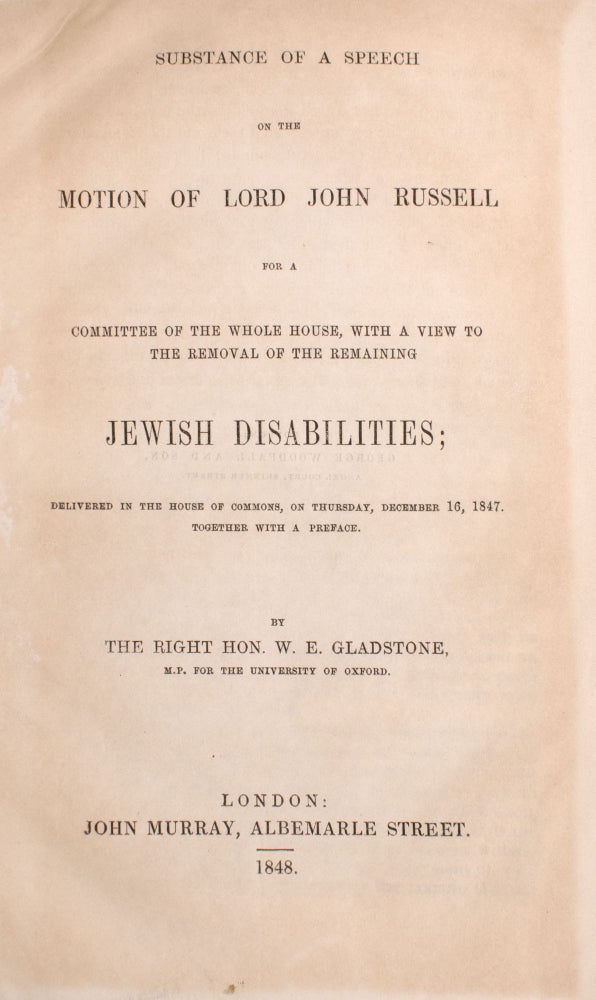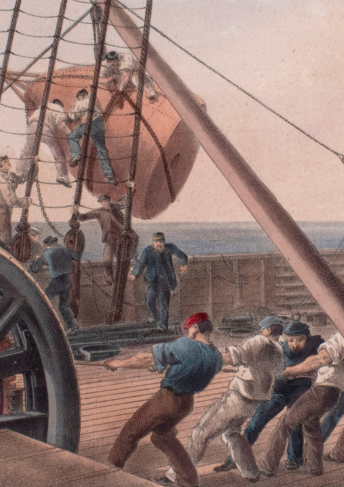Gladstone Changes His Mind on the Jewish Question
Substance of a Speech on the Motion of Lord John Russell for a Committee of the Whole House, With a View to the Removal of the Remaining Jewish Disabilities; Delivered in the House of Commons, on Thursday, December 16, 1847. Together With a Preface.
London: John Murray, 1848.
Price: $1,000.00
About the item
48 pp. 1 vols. 8vo. Gladstone Changes His Mind on the Jewish Question. Modern cloth. First and last leaves with some toning. Near fine. Polly Pinsker, English Opinion and Jewish Emancipation (1830-1860), Jewish Social Studies 14:1 (Jan. 1952).
Item #346224
Public opinion on the question of Jewish emancipation was “in a state of flux” during the 1830s and 1840s, with bills passed in Commons and rejected in the upper house, even as lesser disabilities were removed and Jews began to take up lesser public offices. In August 1847, Lionel Rothschild stood as Liberal candidate for Parliament for the City of London, and after winning the election, renounced his seat because he could not subscribe to the necessary oaths. This prompted Russell, the Prime Minister, to stir Parliament to action.
This pamphlet prints Gladstone’s speech on the motion to study the removal of “Jewish disabilities” and “to open the doors of Parliament to professors of the Jewish creed”, with a lengthy preface.
Gladstone had previously been a strong opponent of Jewish emancipation, but this speech concludes, “I am unable to detect any practical evil or inconvenience likely to flow from it, in any degree equal to the evils that would follow its rejection upon groundds that I take to be not only insufficient, but even false and dangerous. I rate highly the position of Jews in the State, and I find their competency for civil duties asserted in the very largest terms” (p. 47).
“Gladstone’s change in attitude was on a part of the much larger transformation which took place in his whle political philosophy, but this adds to rather than detracts from its significance” (Pinsker).
The measure passed in the Common but was once again rejected in the Lords. Not until 1857 was Russell able to pass an Oaths Bill to which the Lords assented and which put the matter to rest. Lionel Rothschild was seated in the House in July 1858.
Uncommon and interesting.





